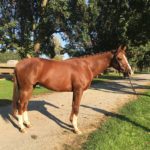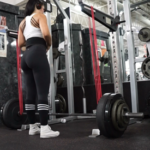Chances are, if you’re reading this blog, you’ve already done it. And, if you’re like me, you did it for all the wrong reasons. If you’re lucky, it ?will work?out just fine. (Some would say it always does, regardless.) When I bought my horse, Trace, it was the beginning of an amazing journey I wouldn’t take for. But in terms of a wise horse purchase, it wasn’t.?Even the purchase of Rio, my goofy little sorrel that makes me smile every single time I look at him, wasn’t quite according to the protocol I now understand as much more solid reasoning when it comes to buying a horse. Still, I love them both and will keep them as long as they’ll let me. This makes them either the luckiest or unluckiest horses on the planet, because of all the things I am, I am NOT a quitter. Usually to my own detriment. Nevertheless, because I do love a challenge (and enjoy having horse issues to research and write about), I keep these founts of learning around for my own education and humbling. So far, this plan seems to be working. But in the spirit of our grandmothers’ wisdom that advises “it’s just as easy to fall in love with a rich man as a poor one” (although I’ve done both with similar results, but that’s another story for another time . . . ), it IS just as easy to fall in love with a good horse as it is an . . .um . . . challenging one. So here’s a little journaling exercise that will help you wrap your mind around the perfect horse?for you.?Get a sheet of paper (or if you journal regularly, a fresh page) and answer the following questions to build a mental picture of the horse you want. Write as much as you can as fast as you can, the first thing that pops into your head with each question. 1. Mare or gelding? Why? 2. How old? Why? 3. What breed? Why? (If there are several you are drawn to, you can list more than one) 4. Color/size/physical characteristics (try not to fixate too much on looks, but we all have our favorites. Again, if there’s more than one you like, that’s OK. ) 5. Temperament and disposition. How does your horse behave when he’s learning something new? Surprised, Frightened? Frustrated? or Upset? Annoyed? Is he affectionate or all business? 6. What’s on his resume? Training method, level, intensity? Disciplines? Show record? Trail experience? Ranch work? Former owners? What does he like to do best? 7. What’s his story? Former owners, physical issues, ?past experience that shape who he is, what he likes and dislikes, and what might motivate him to do whatever it is you’d like to do with him. (Note, I always use “he” when I talk about fictitious horses. I don’t know why. Probably because both of mine happen to be geldings. I like mares just fine. Also, I was an English major and the “he” rule was beaten into me at an early age.) SO . . . now that you have thought all the way around and through your own definition of the perfect horse for you RIGHT NOW, here’s a little pre-shopping visualization for you. Imagine this horse you just described grazing in a pasture. (Sorry. Now you really do have to pick a breed and color.) You’re standing just inside the gate, just watching him. He lifts his head and looks at you, then turns and walks straight toward you. He stops right in front of you and you see soft, quiet eyes on you, waiting. You raise your hand and rub his face. He lowers his head. You put the halter on him and lead him back through the gate and into your life. Return to this list and visualization as often as you can. And don’t forget to come back here and tell us about the horse that shows up for you! Melinda










